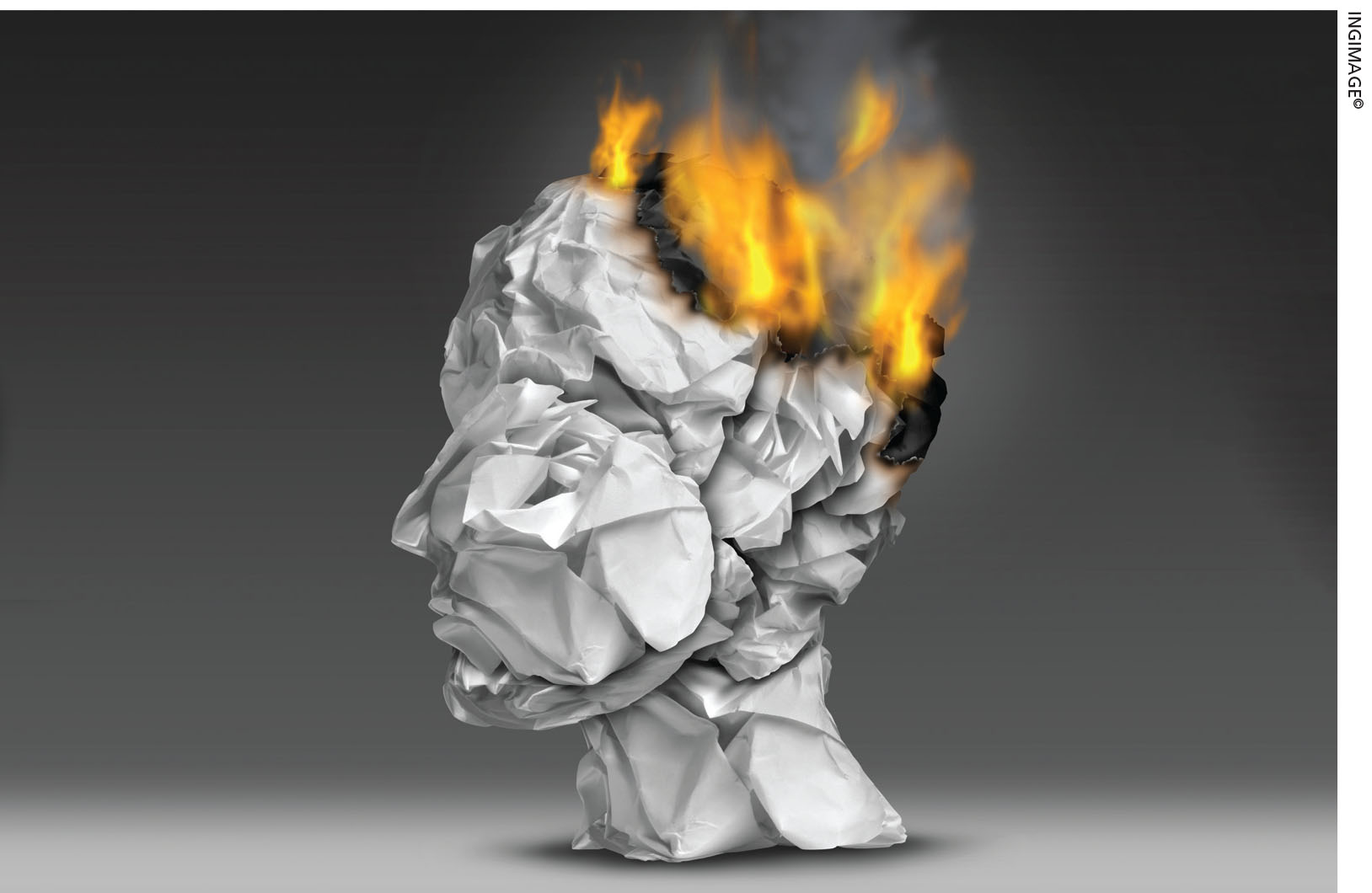STRESS MANAGEMENT
ANXIETY IN THE WORKPLACE
There’s a nexus between mental health and productivity – Pallavi Pinakin
With an end to the COVID-19 pandemic now in sight, it seems life can finally go back to normal. Or can it? These turbulent years have been tough on everyone, heightening stress and anxiety at work and in personal spheres. While the public health crisis may be over, there is no ‘off’ button that can resolve these issues overnight.
As people return to physical workplaces, they carry their anxieties with them. In addition, going back to the office after months of remote or hybrid work is a massive change, which can trigger fear and uncertainty.
While some amount of job-related stress is normal, feeling excessively anxious during the workday has manifold repercussions on your personal wellbeing and quality of life.
Besides placing a heavy burden on the mind, continual worrying can impact your physical health in several ways. You may have trouble sleeping; face digestive problems and headaches; and experience symptoms such as weakness, dry mouth, trembling and shortness of breath.
Given that a stressed mind is ill-equipped to deliver high quality outcomes at work, your productivity and career achievements are also likely to be hampered.
Besides affecting performance, extreme anxiety can also cause you to overreact to situations on the job, which will impact negatively on your relationships with colleagues and bosses – not to mention that you’re probably counting down the seconds until it’s time to clock out of the office!
If you find yourself overwhelmed by severe stress, consider consulting a mental health professional such as a psychiatrist, psychologist or therapist. An expert can help determine whether you have an anxiety disorder and prescribe the right course of treatment.
In addition to professional help, you could also take a number of steps to safeguard your wellbeing and peace of mind at the workplace.
HEALTHY HABITS Stress is invariably worsened due to poor habits such as not getting enough rest, eating junk food or skipping meals and overusing social media. As you emerge from the pandemic, it’s time to create a healthy new routine for yourself.
Prioritise getting at least seven hours of sleep at night, eat nourishing meals and curb your time on social media. Also, make it a point to carve out a few hours each week for things you genuinely love – hobbies, being with nature or spending time with loved ones. These will replenish lost energy and uplift your mood.
TOXIC TRIANGLES Many workplaces have a culture of gossiping and venting about coworkers. It can be tempting to bond with colleagues by complaining about a third person since this may even offer some temporary relief from anxiety.
However, this ultimately creates an unhealthy environment and gives rise to interpersonal conflicts that will affect your state of mind. Therefore, it’s best to keep your workplace relationships free of gossip. If you have a genuine issue with a coworker, approach that person directly to try and resolve it.
LIKELY TARGETS Overwork increases anxiety as you struggle to meet targets and face the prospect of missed deadlines. If you are already beset by fears and doubts, it can be hard to refuse additional tasks or renegotiate tight timelines. That’s why it’s important to make a conscious effort to take on a realistic amount of work at the office.
ORDERLY DAYS Organisation is key to smoother workdays and more enriching personal time, both of which are vital for a calm mindset. Begin by cleaning out every element of your workspace – from desk to computer. Then turn your attention to scheduling. What time of the day are you most productive? Dedicate those hours to priority items that demand deep focus or creativity.
Are there meetings on your calendar that can be eliminated? Or are there any repetitive tasks – either in the office or at home – that can be automated, outsourced or completed in a single block of time each week? Freeing up even a few precious hours will allow you to breathe easier and create a much needed sense of space in your day.
BEING MINDFUL Mindfulness has proven to be an invaluable aid for millions of people battling anxiety. You can bring mindfulness into your day in any form you like – keep a gratitude journal, meditate for 10 to 15 minutes in the morning or practise yoga.
REACH FOR HELP Whether at work or in the home, many people tend to hide their stress – even from those they love and cherish. But bottling up anxiety almost always backfires. Stressed people tend to become irritable or withdraw silently, which can lead to ugly fights or nervous breakdowns.
Acknowledging vulnerability is an important part of restoring your emotional balance. Share how you are feeling with someone you trust – a colleague, friend or family member – and ask for help if you need it.





